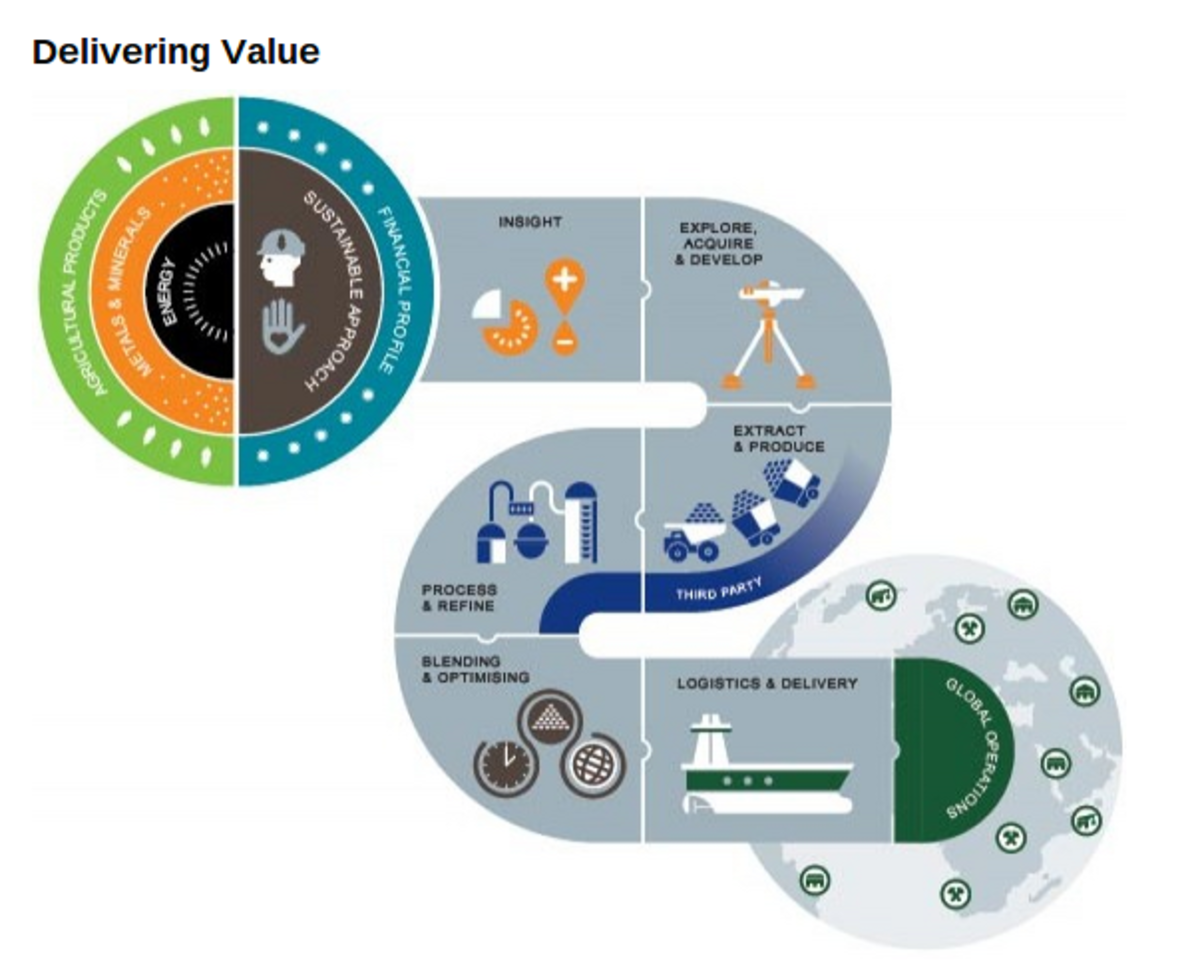Investing for Inflation - How to Hedge Against a Dollar Decline

The purpose of this article is to explore strategies to invest for inflation and protect against a decline in the value of the dollar. Given the extraordinary actions undertaken by the U.S. Federal Reserve in combating the financial crisis and resulting economic downturn, many people are now quite rightly worried about the potential inflationary consequences of a massive expansion of the Fed's balance sheet. Predicting the economic future is far from easy, but the combination of Fed money printing, the ever-growing national debt, and the huge U.S. trade deficit seems likely to produce a decline in the purchasing power of the dollar over time. Investing for inflation is mandatory for those who want to maintain their standard of living.
The Case for Inflation
Nobel Prize-winning economist Milton Friedman claimed that "inflation is everywhere and always a monetary phenomenon." If we are trying to figure out if the Federal Reserve is "printing money", we can look at the broad monetary aggregates as well as the size of the Fed's own balance sheet. In truth, the picture is mixed. Virtually all of the money supply indicators show a huge expansion of the money supply during the period from September to December 2008, when the financial crisis was at its height, and a leveling off thereafter.
In short, the Fed printed a lot of money during the financial crisis, but has tried to act more responsibly since then. The question remains the extent to which the already existing expansion of the money supply will lead to real-world inflation. Excess money has to go somewhere, but will it feed into inflation in goods and services or will it create another round of the sort of asset bubbles that characterized the Alan Greenspan era?
Complicating the picture is the large and persistent U.S. trade deficit which causes hundreds of billions of dollars to flow into foreign hands each year. The build of of dollar reserves by overseas governments has reached epic proportions, and there are growing signs of dissatisfaction on the part of foreign governments everywhere who are worried that the value of their dollar holdings will face significant declines in the future. There are almost certainly right to be worried.
In addition the exploding U.S. fiscal deficit only adds to inflationary pressures. Running annual fiscal deficit of nearly 10% of GDP is not a sustainable policy under any circumstances. The swift rise in our national debt can only lead to pressure to devalue the dollar as a way of getting out from under our enormous foreign debts.
Hyperinflation Nation
Profiting From Inflation
Given this high likelihood of future inflation, what can ordinary investors do to protect themselves or even profit from the coming inflationary times? Historically, hard assets have proven to be the best way of investing for inflation, but given that real estate is typically the king of the hard asset classes, will this remain the case in the future?
The epic decline in the value of both residential and commercial real estate we are now witnessing is enough to make anyone wary of putting a large percentage of their net worth into those kinds of investments. That is not to say that one should avoid real estate altogether, but it's reasonable to be cautious about the near term future of real estate. Fortunately, there are good alternatives to real estate that can at the minimum hedge against inflation, and perhaps do much better than that.
TIPS: Treasury Inflation Protected Securities - Tips are without a doubt the simplest way for small investors to hedge against future inflation. They are a type of U.S. government bond that pays a yield based on the Consumer Price Index plus a small "real", after inflation, return. Currently, the real return available on most TIPS duration is between 1 and 1.5 percent. This means that if inflations averages 6 percent during your holding period, you would get a 7 to 7.5% yield on your TIPS. Obviously you won't get rich with TIPS, but you will at least protect your purchasing power.
TIPS can be purchased directly from the government through the Treasury Direct program. Most brokerages also allow you to bid on TIPS auctions or buy them in the secondary market. Vanguard offers a good low cost mutual fund called the Vanguard Inflation Protected Securities Fund that invests only in TIPS.
Gold - Gold is a traditional storehouse of value in times of currency debasement. It's universally recognized as a medium of exchange in lieu of suspect paper currencies. That is not to say that anyone should put their entire net worth into gold, or speculate in gold futures on a leveraged basis. The hard core "gold bugs" have always recommended buying only physical gold on a cash-only basis. Sensible advice.
Physical gold can be purchased on ebay or through local gold and coin dealers. It can also be bought at coin and precious metals expos that take place around the country. Typically, you should expect to pay the spot price plus a small premium when you buy.
There are also a few ETFs (electronically traded funds) traded on stock exchanges that allow you to buy a share of stored gold held by a trustee. The streetTRACKS Gold Shares ETF (ticker: GLD) and the iShares COMEX Gold Trust (ticker: IAU) are among the most popular.
Commodities - Commodities, including energy sources like oil and natural gas, base metals like copper and zinc, food like wheat and coffee, and precious metals like silver and platinum, can be expected to benefit from any generalized inflation. Traditionally, most investors in commodities have invested in them through futures contracts, but that isn't recommended for amateur investors.
More recently, ETFs and ETNs (electronically traded notes) have cropped up that allow small investor to own shares in commodities without dabbling directly in futures. Commodity related ETFs include Dow Jones-AIG Commodity Index Total Return ETN (ticker: DJP), the iShares GSCI Commodity-Indexed Trust (ticker: GSG), and the Goldman Sachs Commodity Return Total Index (ticker: GSP).
Foreign Stocks - Peter Schiff, a leading proponent of the idea that the United States is in the midst of an inflationary depression, recommends investing in foreign stocks as the best way to hedge against inflation and the decline in the dollar. The idea is that the rest of the world, particularly Asia, will continue to grow its share of world GDP while the U.S. stagnates. Investing in foreign companies allows you to both share in Asia's growth and profit from America's relative decline.
Needless to say, there are tons of mutual funds that allow you to invest in foreign shares, and to list them all is beyond the scope of this article, but the iShares MSCI EAFE Index fund ETF (ticker: EFA) and the Vanguard Emerging Markets Stock Index Fund are two worth considering.
Although it's far from certain that either the United States or the rest of the world faces an inflationary future, the odds seem to favor it. The incredible build up of debt by the world's governments as they try to combat the effects of the economic downturn seems inevitably likely to lead to currency debasement. Investing for inflation as a way of hedging against a dollar decline makes sense both as an investment strategy as well as simply a way of protecting your assets against a decline in purchasing power.
More Investment Articles by This Author
- Buffett Stocks: What's in Warren Buffett's Portfolio?
Warren Buffett - source: http://www.flickr.com/photos/trackrecord/178633669/ creative commons licence. The performance of Warren Buffett's stock portfolio has been nothing short of astounding over the years. ... - The Best Financial Blogs
Lot's of excellent financial bloggers now give solid, informed commentary about markets and the economy. Some are academic economists of great renown, while others are just interested amateurs. The great... - The Best Investment Books Ever Written
The best investment books don't contain magic formulas for stock market wealth. If they did, we'd all be rich. Rather, great books on investing teach us how to think, how to analyze, and how to approach a... - The Best Low Cost Index Funds
Low cost stock market index funds are the smart choice for most people's financial portfolios. The academic case for passively managed index funds over actively managed mutual funds has been made again and...








